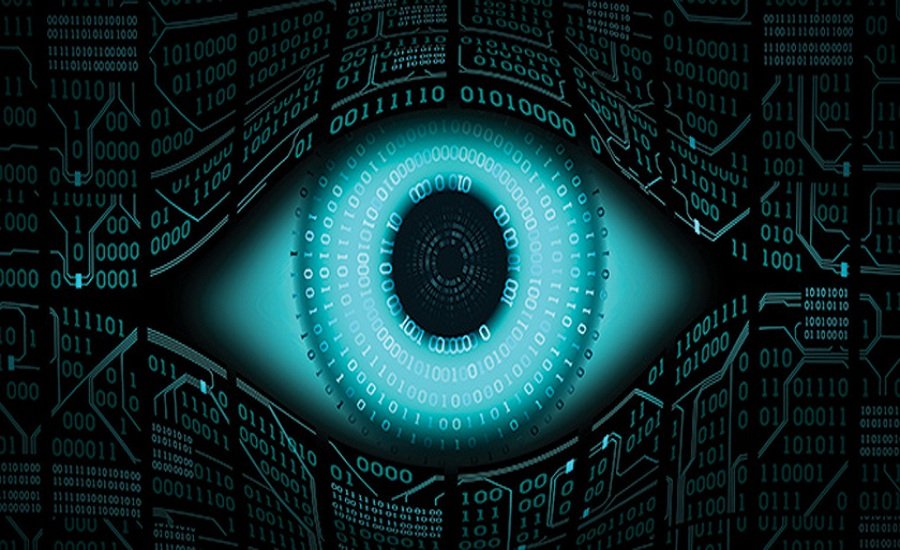
‘This is not to stop any cyber crime on social media but to create warfare against the people, make them succumb to the pressure and indulge into the self-censorship’
Arjumand Shaheen | Clarion India
SRINAGAR – Recently, the Central government came up with setting up the Cyber Crime Volunteers’ force, to keep an eye on the unlawful activities on social media. In this matter, Jammu and Kashmir Police has asked netizens to register as volunteers through a dedicated section ‘Cyber Volunteers’ on National Cyber Crime reporting Portal. The portal was launched by the Home Ministry on 30th of August, 2019.
Cyber Volunteers are being sought to monitor social media and the activities of users on it and further report any unlawful activity to the government.
Most of the people including human rights activists, journalists and lawyers expressed their concern over this move. They feel that by doing so, police and government are trying to suppress the dissent and for doing that they accused the government of cyber spying the people through volunteers.
“Under this initiative, any Indian citizen can get himself/herself associated by registering in any of three categories of cyber volunteer. Cyber Volunteer Unlawful Content Flagger force will be identifying/reporting online illegal/unlawful content like child pornography, rape/gang rape, terrorism, radicalization, anti-national activities etc. to government,” J&K Police statement said.
For registering themselves on the portal, the volunteers are required to give their personal details like full name, parentage, contact details, email address, residential address, etc. ID proof and address proof shall be required to be uploaded at ‘Upload ID Proof tab in the registration form,” said the statement.
Police statement said that the volunteers can register themselves in any of the three categories including Cyber Volunteer Unlawful Content Flagger, Cyber Awareness Promoter and Cyber Expert.
The statement added, “The Cyber Awareness Promoter will create awareness about cybercrime among citizens including vulnerable groups like women, children, elderly and rural population etc.”
“Cyber expert shall be dealing with the specific domain of cybercrime, forensics, network forensics, malware analysis, memory analysis and cryptography. For registration as ‘Cyber volunteer Unlawful content flagger, no prior verification is required.”
“To register as ‘Cyber Awareness Promoter or Cyber Expert’, prior verification (KYC) will be carried out by the concerned State/UT. Once a volunteer registers, his/her details would be accessible to the UT Nodal officer for cybercrime, i.e. IGP Crime Branch J&K,” the police statement further added.
Noted author and journalist Gowhar Geelani referred to the Act as the ‘Thought Police’ situation as portrayed by George Orwell in his 1984 novel, where there was surveillance on everything including one’s thoughts. He said that they were trying to control the narrative on social media, criminalise the opinion and kill the journalism in one go.
“This is not to stop any cyber crime on social media but to create warfare against the people, make them succumb to the pressure and indulge into self-censorship and don’t post anything on social media that is a commentary on a region’s political, social and other setup,” Geelani said .
Social media user’s fear that any random person, as a cyber-volunteer, can raise objection against any of their posts on social media, flag it as anti-national, anti-society or whatever he wants and can make them get into trouble. People believe that its mere purpose is to psychologically pressurise the people and over power their thinking and opinion.
They also fear that this will create a sense of uncertainty about the people, whom they are chatting with, portraying himself to be their so-called friend on social media, in turn could be the one who can put them into a mammoth predicament.
“They are ostensibly and indirectly trying to curtail the freedom of speech. This is a psychological pressure on people’s mind where they are being told that you are under complete surveillance all the time,” said Solih Peerzada, a lawyer from Rambagh Srinagar.
Peerzada termed this law as morally and ethically wrong. He said that the volunteers will create fake profiles on social media and induce people to say something.
“If this was the security initiative, they wouldn’t have made it public. Now one cannot distinguish between the common man and the police on social media. They are trying to curtail the freedom of expression before one expresses it,” Peerzada added.
Even before this volunteerism law, the government has been frequently into summoning and harassing different people, including students and journalists, for either their work or for whatever they post on social media.
Last year a few journalists from J&K, for their posts on social media, were booked by the government, by terming the posts as unlawful activity. Also recently, a case was registered against two news portals for spreading fake news. However the news portals firmly stood by their stories.
“Earlier the government has tried to control the mainstream media by withdrawing and curtailing advertisements. Now they came up with this cyber volunteerism. This cannot be called cyber volunteerism but cyber bullying, where any random person, for either personal reasons, money, greed or personal animosity, could register a complaint against anyone and get them booked.”
“This new group can be compared to the government sponsored Ikhwans of the mid-90’s. These are cyber renegades without guns who are given the name as volunteers,” said Geelani.
Another Lawer from South Kashmir’s Shopian, Habeel Iqbal said that the scheme was similar to the Gestapo regime of the Nazi Germany, which was the official secret police of the Nazi’s. The purported objectives of the Gestapo were similar to this scheme but in reality the purpose is to have greater control over “social order”.
“This is an attempt to reintroduce the Section 66-A of the I.T. Act, which was struck down by the Supreme Court. It can legitimatise cyber vigilantism. Also, this scheme seems to be per incuriam and it won’t stand the test of constitutionality in an independent court of law,” Iqbal added.

